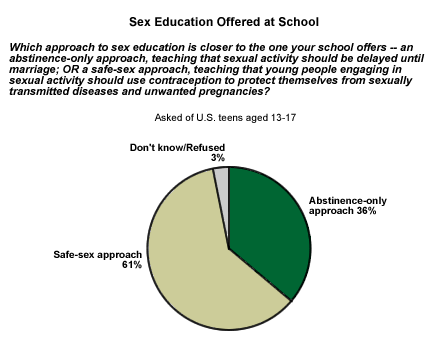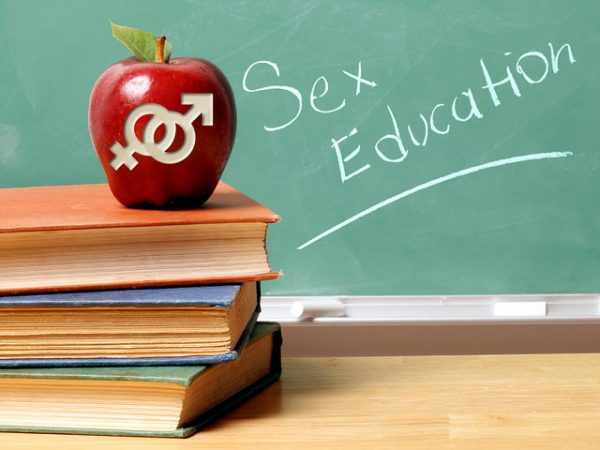Omaha Public Schools, which serves about 52, 000 students in its district, has taught sex education since 1986 as part of a course called Human Growth and Development. Are you against sexeducation in schools? Most definitely, sex education should be implemented in schools because sex education can reduce teen pregnancy, its better for the teenagers to get information about sex and sexual protection methods from right sources (schools) rather than from the media and sex education in schools can also protect children and teenagers. High quality essays written by experts on education are presented. Essays discuss the controversies surrounding sex education in public schools, the primary elements associated with sex education, and an overview of the arguments for and against various forms of sex ed. 23 rowsSex education, human reproduction education and human sexuality education curriculum. Children will be taught about healthy adult relationships from the age of four, with sex education made compulsory in all secondary schools, though faith schools will still be allowed to teach. Comprehensive sex education doesn't encourage kids to have sex. Just like abstinenceonly programs, good comprehensive programs teach students that abstinence is the only surefire way to prevent pregnancy and STDs. Thinking about sex education conjures up all of those uncomfortable moments as an adolescent when we had to sit at our desks and listen to our health teachers talk. The delusional thinking is that providing comprehensive sex education in schools is an endorsement of sexual activity. So instead, in the richest country in. While sex education has historically brought forth great tension and debate between schools and communities, National Public Radio asserts that providing effective sex education can seem daunting because it means tackling potentially sensitive issues. The act of informing younger and adult generations about everything they need to know about sex is called Sex education. Sex education is one of the most controversial issues in education, which has been floating on educational institutions since ages. Sex education has extensively become a vital subject to be debated not just in homes but in schools also. Generally, sex education is education revolving around sexuality, preventions of STDs (sexually transmitted diseases), contraceptive methods such as drugs and condoms, significance of protection, and attitudes as well as principles around sex (Spielhagen, 2013). There are few things more annoying than listening to parents complain about schools teaching their children about sex, Roland Martin says. In recent years, critics of abstinenceonly instruction have pushed schools to offer students comprehensive sex education programs, as these have been found to delay the onset of sexual activity, reduce the number of sexual partners during adolescence, and increase the rate of contraceptive use among schoolaged individuals. Sex education is taught mainly in public schools on topics ranging from abstinence and reproduction to sexually orientation and sexually transmitted diseases. Sex education is primarily introduced in grades seven through 12 although some schools have addressed sexuality topics as early as the fourth grade. Beginning in the 1970s, concerns over teen pregnancy and later HIVAIDSgalvanized widespread public support for sex education in schools. Most states today have a policy requiring HIV education, usually in conjunction with broader sex education. Adolescents REPORTS OF FORMAL SEXUAL HEALTH EDUCATION Formal sexual health education is instruction that generally takes place in a structured setting, such as a school, youth center, church or other communitybased location. The American Academy of Pediatrics, American College of Obstetricians Gynecologists, American Medical Association, American Public Health Association, Institute of Medicine, and Society for Adolescent Medicine, among others, support comprehensive sex education, including education about both abstinence and also contraception and condoms. Sex education in the United States is taught in two main forms: comprehensive sex education and sex education is also called abstinencebased, abstinenceplus, and sexual risk reduction sex education. Sex education will become compulsory for school children from September 2020, the Government has announced. Pupils as young as four are to be given lessons in wellbeing and healthy living. Sex education in public schools has been a controversial issue in the United States for over a decade. With the HIV and teen pregnancy crises growing, sex education is needed. Some of the American public believe that sex education should be taught at home by the children's parents. All schools must have a written policy on sex education, which they must make available to parents for free. It brings up ageappropriate sexuality topics and covers the broad spectrum of sex education, including safe sex, sexually transmitted infections, contraceptives, masturbation, body image, and more. It teaches that sexuality is a natural, normal part of healthy living. Sex education is a broad term used to describe education about human sexual anatomy, sexual reproduction, sexual intercourse, and other aspects of human sexual behavior. Schools Are Failing Most schools aren't meeting the CDC's recommendations for teaching students about sex, and the curriculum is far worse in some states. Sex Education is widely supported by the vast majority of people in the United States. In Planned Parenthoods most recent poll on sex education, 93 percent of parents supported having sex education taught in middle school, and 96 percent of parents supported having sex education taught in high school. The vast majority of parents support sex education in middle. Sex Education within Schools Opinions regarding what constitutes an effective and appropriate sex education vary between countries, nations, cultures, and even among families. The sex education curriculum of any given society typically reflects the dominant cultural values and norms of. The government is proposing the introduction of the new subject of relationships education in primary school and renaming the secondary school subject relationships and sex education. Sex education in schools is being given increasing importance as it is known to inform students about issues related to sex and sexual health. It is considered important for societies that its. In primary schools, the focus would be on building healthy relationships and staying safe, the Department for Education (DfE) said, while in secondary school it would focus on sex as well as. Comprehensive sex education is proven to help students stay abstinent longer than no sex education or even many abstinenceonly programs. It is also important to understand that schools provide education on a more comprehensive range of topics because state law requires them to. Because of sex education programs, schools have been taking away the parents responsibilities of teaching their child about human sexuality. Due to influences throughout the years, especially because of Planned Parenthood, todays sex education programs have. The dispute over sex education in public schools erupted last week when presidential hopeful Barack Obama expressed his support for ageappropriate sex education to be taught in public schools. Sex is a natural physiological part of life and schools in America need to take the initiative to put sex education on the curriculum and discuss safety and the facts, not forceful brainwashing. Tags: sex education in high schools, sex education in schools, sex education public schools, sex education schools, should sex education be taught. Sex Education To Be Made Compulsory In England Schools. Education Press Trust of India Wednesday March 1, 2017. Schoolchildren in England will be. Sex education lessons in schools are ignoring gay and lesbian relationships, according to new research. Teachers often talk to boys about girlfriends and girls about boyfriends when it. Sex and special needs: Why new schools guidance must embrace pupils with learning difficulties. Many schools are denying sex education to vulnerable young people who need it most School sex education is important, yet most of us learn little of what we know about sex from our schooling. We learn it from friends, from family and, increasingly, from the media. In England from the late 19th century, a number of sex education publications were produced, mainly aimed at helping parents to enlighten their children. Most schools that do provide sex education, have an 'abstinence is the best solution' approach to it. They stress on abstinence as the perfect way to be totally free from any problems whatsoever, related to sex and sexuality. The Future of Sex Education Initiative (FoSE) was launched as a partnership between Advocates for Youth, Answer, and the Sexuality Information and Education Council of the U. (SIECUS) to create a national dialogue about the future of sex education and to. England's education secretary rejects MPs' calls to make sexandrelationship education compulsory in all schools. Sex Education in Public Schools All states are involved in sex education for public schoolchildren to some degree. However, states differ greatly in the extent of involvement and whether comprehensive or abstinenceonly programs are required. In delivering sex education, schools are currently required to have regard to the: Sex and Relationship Education Guidance, published in 2000. 1: The current statutory provisions on sex education are contained in sections 403 and 405 of the Education Act 1996 as amended..











